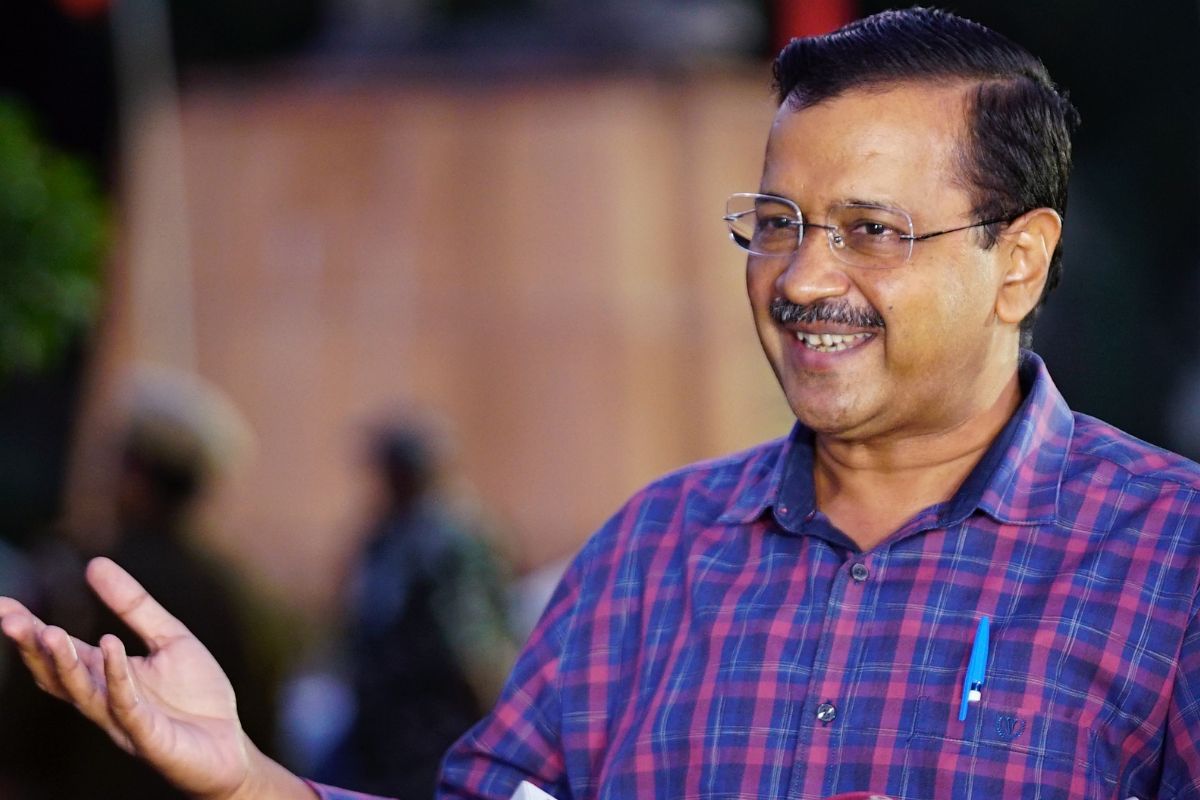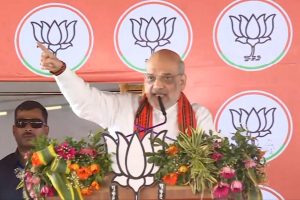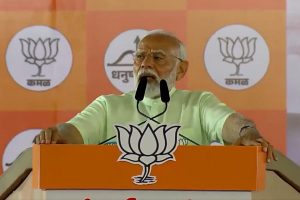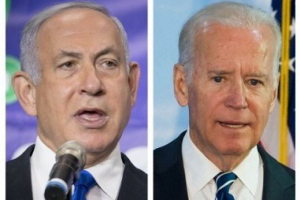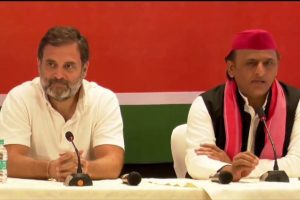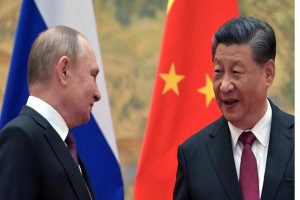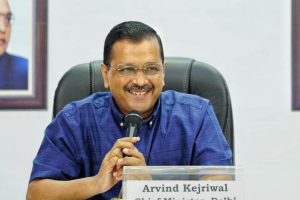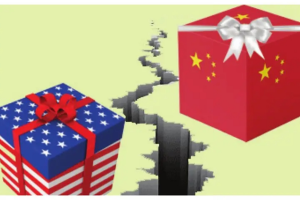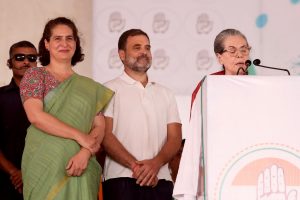The Supreme Court on Friday granted 21-day interim bail to Delhi Chief Minister and AAP convenor Arvind Kejriwal till June 1to participate in the ongoing Lok Sabha polls.
Granting relief to Kejriwal, who was arrested by the Directorate of Enforcement on March 21, a bench of Justice Sanjiv Khanna and Justice Dipankar Datta ordered that the AAP leader will not attend his office or go to the government secretariat during this period.
The court ordered that Kejriwal would surrender to jail authorities on June 2.
Kejriwal, the court said in its order pronounced by Justice Khanna “shall furnish bail bonds in the sum of Rs.50,000/- with one surety of the like amount to the satisfaction of the Jail Superintendent” and “he shall not visit the Office of the Chief Minister and the Delhi Secretariat.”
The order stated that Kejriwal “shall be bound by the statement made on his behalf that he shall not sign official files it is required and necessary for obtaining clearance/ approval of the Lieutenant Governor of Delhi.”
However, the court shackled Kejriwal ordering that he will not make any comment with regard to his role in the present Delhi excise policy case and he will not interact with any of the witnesses and have access to any official files connected with the case.
The court clarified that the grant of interim bail to Kejriwal will not be treated as an expression of opinion on the merits of the case arising from his challenge to arrest and the subsequent remand that is pending before the bench.
The court brushed aside the Directorate of Enforcement’s opposition to the grant of interim bail to Kejriwal on the grounds that no separate category of ‘politicians’ could be created for the grant of interim bail and to participate in electioneering is a “luxury” and approach the trial court for bail.
Observing that at this stage, it is not possible for us to either conclude the arguments or finally pronounce the judgment, the court in its order said, “However, there is an intervening factor which has prompted us to consider and pass the present order, namely, 18th Lok Sabha General Elections, which are in progress.”
Rejecting Directorate of Enforcement’s argument that participating in the election campaign could be a ground for the grant of interim bail, the order said, “It is no gain saying that General Elections to Lok Sabha is the most significant and an important event this year, as it should be in a national election year. Between 650-700 million voters out of an electorate of about 970 million will cast their votes to elect the government of this country for the next five years. General Elections supply the vis viva to a democracy.”
“Given the prodigious importance, we reject the argument raised on behalf of the prosecution that grant of interim bail/release on this account would be giving a premium of placing the politicians in a benefic position compared to ordinary citizens of this country. While examining the question of grant of interim bail/release, the courts always take into consideration the peculiarities associated with the person in question and the surrounding circumstances. In fact, to ignore the same would be iniquitous and wrong”, the order said rejecting ED’s contention.
On the ED’s contention not to treat politicians as a distinct cartoony for the grant of interim bail, the order said, “Power to grant interim bail is commonly exercised in a number of cases. Interim bail is granted in the facts of each case. This case is not an exception.”
Noting that Kejriwal did not appear before the ED despite being summoned nine times, the order said, “This is a negative factor, but there are several other facets which we are required to take into consideration. The appellant – Arvind Kejriwal is the Chief Minister of Delhi and a leader of one of the national parties. No doubt, serious accusations have been made, but he has not been convicted. He does not have any criminal antecedents. He is not a threat to society.”
Rejecting the ED’s contentions, the order said that the question of granting interim bail to Kejriwal could not be compassed with analogies like harvesting of crops by a farmer or plea of a businessman to look after his business affairs.
The order further said, “The investigation in the present case has remained pending since August 2022. Arvind Kejriwal was arrested, as noted above, on 21.03.2024. More importantly, legality and validity of the arrest itself is under challenge before this Court and we are yet to finally pronounce on the same.
“The situation cannot be compared with harvesting crops or pleading to look after business affairs. In this background, once the matter is sub-judice and the questions relating to legality of arrest are under consideration, a more holistic and libertarian view is justified, in the background that the 18th Lok Sabha General Elections are being held.”
Brushing aside the argument that Kejriwal should approach the trial court for interim bail, the order said, “As the appeal is pending before us, we do not think it would be proper for us to direct the appellant – Arvind Kejriwal to approach the trial court for interim bail/release. This may not be apt in view of the legal issues and contentions that are under examination and consideration before us.”
Kejriwal in his plea against the High Court order has contended that his arrest after announcement of the General Elections is “motivated by extraneous considerations”. Describing his arrest as “motivated”, Kejriwal has contended that a sitting Chief Minister has been arrested in the middle of election cycle and especially after the announcement of the schedule of the 2024 Lok Sabha election.
The petition says that Kejriwal’s arrest also constitutes an “unprecedented assault on the tenets of democracy” based on “free and fair elections” and “federalism”, both of which form significant constituents of the basic structure of the Constitution.

